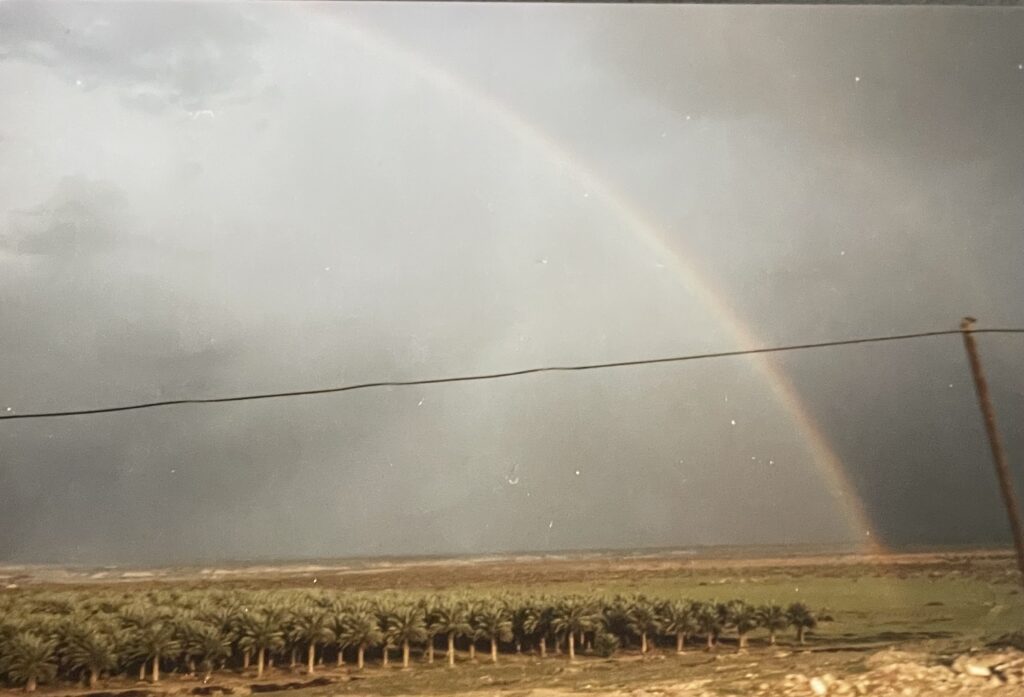
– Jodi Kushins, KSS Board Chair
I try not to start blog posts with excuses. I often type and then delete things like, “I’ve tried to start this post ten times.” On a typical day it would be boring and somewhat of a forgone conclusion. Writing is work – it takes time, it’s about starting and stopping, writing and revising. But in this moment, jumping the hurdle from thinking about writing and completing something you feel comfortable sharing means something new.
At this moment in time, many Jews are turning to their Rabbi for guidance. But the rabbis don’t have the answer. They are individuals like you and me having their own G?d-wrestling/Israel moments; reflecting on and re-evaluating their relationship with that place, its people, and its politics. I know because I’ve been in meetings with them. I’ve seen and heard their vulnerability. Absorbed the pressure they feel to say something insightful and clarifying, without saying something that might offend congregants.
And still, I very much wish we had a Rabbi in this moment so I wouldn’t feel compelled to write something here. In lieu of that, I think it’s important that I share where I am in this moment, and how it relates to things I’m hearing from our members and doing with our Board in the name of Sukkat Shalom.
You don’t need me to tell you ours is a tradition steeped in learning, questioning, and debate. Tikkun Olam, finding light amidst darkness, is what we were put on Earth to do. And so for the past three weeks I have been reading, questioning, talking, listening, perseverating, seething – searching for the light.
I have trouble trusting anyone confidently entrenched on either side of this situation with no willingness to listen to the suffering of those on the other side – now and going back in time decades, centuries, millennia . As Stephen Fulder, an Israeli Peace activist and founder of Tovana the Israeli branch of Insight Meditation, offered in a session last week, “To walk in someone else’s shoes is a sacred act.” It is an act of compassion that requires moving slowly. Sadly right now a lot of people are acting quickly, fueled by passionate rage.
And still, some aspects of the current conflict seem to demand that. They are black and white. Hamas militants murdered Jewish children in their sleep and are holding more than 200 people hostage. Palestinian children in Gaza go to bed, if they can find one, afraid they will be bombed overnight. The experiences, feelings, and impacts of terror are undeniable. But much of what we face seems to be some shade of gray. I hear one side and it makes sense. Then I hear the other side and it also makes sense.
This resonates for me as a qualitative researcher. It’s a reflection of our collective inability to ever fully grasp “the” full story. The Israeli-Palestinian conflict is not a smoothly polished marble, it’s a jagged crystal with an infinite number of edges. The history that led us to this moment is murky and complicated and so often told from some biased perspective or another. It’s hard to know whom or what to trust.
And yet we must continue to try. Here are some things I’m doing in the name of understanding; in my search for tikkun olam.
– I’m reflecting on time I spent in Israel on two trips as a teenager.
– I’m trying to stay off social media. When I find myself there, I try to pose questions not make pronouncements, if I post anything at all.
– I’m empathizing with Palestinian civilians who have been displaced from their homes, lost loved ones, and don’t know where their next meal is coming from.
– I’m checking in on people I know with family in Israel.
– I’m trying to check-in with Muslim friends.
– I’m responding to non-Jewish friends who ask me to “give them a sense of what Jews are thinking at this time,” even if being asked to do so makes me uncomfortable.
– I’m listening to Jewish friends and family as they digest the news and think out loud.
– I’m trading notes with other congregational leaders in Reconstructing Judaism about holding space for communities composed of people who don’t see eye-to-eye on what’s best for Jews or for Israel in this moment.
– I’m reading and reading and reading. The New York Times, Ha’Aretz, +972, Jewish Journal, Jewish Currents…
– I’m revisiting R’ Tirzah Firestone’s advice for turning Wounds into Wisdom as I contemplate my family’s relationship with Israel in the generations since pogroms and the Holocaust.
– I’m processing reports from our local security director on antisemitism, considering which to pass on and which would only amplify fear and misinformation.
– I’m worrying about students on college campuses.
– I’m wrestling, alongside the KSS Board, with what it means to “Stand with Israel.”
– I’m feeling pride that Sukkat Shalom joined Synagogues Rising in calling on President Biden to “de-escalate and interrupt this cycle of violence, negotiate the safe return of hostages, and protect the lives of all Israeli and Palestinian civilians.” (Click here to read the statement)
– I’m depressed that the violence continues, supported by foreign governments on both sides.
Nothing prepared me to lead this community in this moment. I am just one person trying to make my way through the middle of this very very narrow bridge – “Kol ha’olam kulo, gesher tzar meod.” It gives me great comfort to know I have our Sukkat Shalom to lean into as a shelter of peace for the spiritual and skeptical*. I hope you feel the same and will join us in the coming weeks for conversation and comradery as we slowly and carefully find our way through this foggy chasm.
*Spiritual and skeptical was an early tagline used to describe Sukkat Shalom (then The Little Minyan)’s approach to Judaism.

Thank you for this Jodi. Well said.